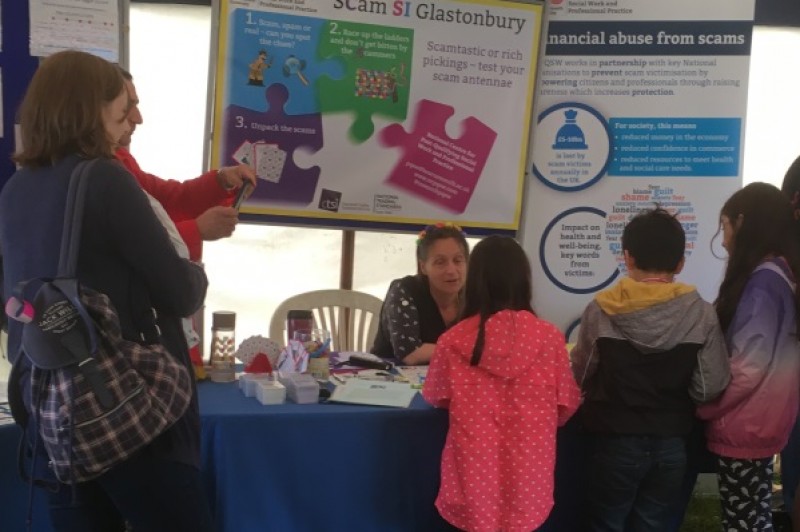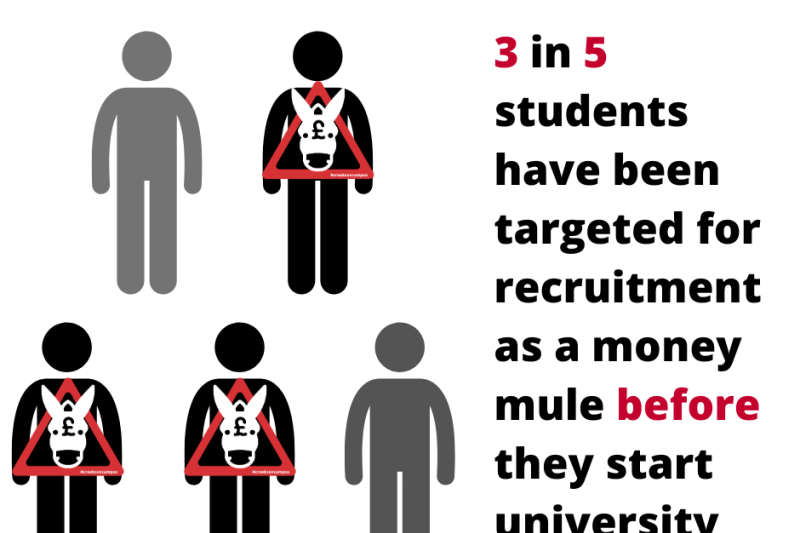
A team of Bournemouth University (BU) academics comprising Post-Doctoral Research Fellow, Dr Sally Lee, and Research Officer, Emily Rosenorn-Lanng, from BU’s National Centre for Post-qualifying Social Work (NCPQSW), set up at Glastonbury Festival this year to provide information and advice to festival-goers at one of the UK’s biggest music festivals. Sharing space in the Science Tent with academics from across the southern region was a great opportunity to let others know about the work we are doing here at BU.
Held over five days, with a huge line-up of international stars from the music world and audience of more than 135,000 people, researchers looking into the effects of financial scamming were targeting a different kind of audience at Glastonbury Festival this year.
BU Post-Doctoral Research Fellow, Dr Sally Lee, said: "Being at Glastonbury offered us an amazing opportunity to engage with a very different and huge audience. Science Tent organisers estimate that we met with around 1000 people over the 5 days.
“The first response I got from people when I told them about us taking our scamming research to Glastonbury was: ‘did you scam people?’ and the answer is of course, yes, though we promised to return their personal information.
“To make our research attractive, and draw in an audience, we turned to games which offered information in bite size chunks and rewarded players who used their scam ‘antennae’.”
Games for all ages provided by the team included a ‘Scams & Ladders’ game in which participants that were caught by scamming ‘snakes’ slid down a board, while those beating scammers were rewarded.
Sally added: “In one of the games, we used a detection exercise that demonstrates how humans tend to want to please and are generally reciprocal by nature. This demonstrated the characteristics scammers use to their advantage.”

Although designed to entertain, the team’s games demonstrated a serious research endeavour; collecting data about the public’s awareness of scams and trialling alternative ways to present our findings which link research and real-life.
The NCPQSW, based at BU’s Lansdowne campus, was founded by Professor Keith Brown in 2000, and works in partnership with over one third of local authorities in England with more than 10,000 students study in social work fields at BU.
Professor Brown, Director of the National Centre for Post Qualifying Social Work (NCPQSW) at BU, whose book about financial scamming was available at the festival, said: “What we are finding is really quite fascinating but also quite scary.
“Scamming is different for different people and comes about in lots of different ways. Some people realise they are being scammed, some don’t, and some people are frankly too embarrassed to even admit it to themselves.
“Scamming can be “door-step” crime, these are the sort of people who come to your house and want to paint your shed or fence for £1,000, and then repair your roof for £10,000. We’ve also got mail scamming, false lotteries, telephone scamming, and internet scamming, which is on the rise and not necessarily prevalent in the elderly.”
To read more about the work of BU and the NCPQSW in combatting financial scamming, please visit: www.ncpqsw.com/



